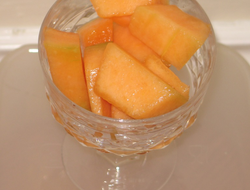Potassium: An essential macromineral
Published: September 24, 2021
People are often advised to eat a banana after a strenuous work out to help replace electrolytes, particularly potassium, which may have been excreted in sweat.
But replacing potassium losses is not only for those who exercise. Everyone needs potassium.
What is potassium and what does it do for you in your body? Are you getting enough?
Potassium, a chemical element with the symbol K, is an essential mineral in terms of human metabolism and health.
It is considered a major mineral as it is present in your body and necessary for optimal health in relatively large amounts.
As an element, potassium is a silvery white alkali metal.
Within your body, potassium has many important functions and is the major cation inside the cells of your body while sodium which is the major cation outside the cells of your body within extracellular fluid.
Between 95-98% of the potassium in your body is found inside your cells.
Potassium makes up about 0.35% of your total body weight which is about 210 g for a person weighing 60 kg (134 lb).
In nature, potassium is the seventh most abundant element on earth and is found in a wide variety of foods.
Despite potassium's availability, many people may not consume a diet which provides them with an adequate intake of potassium: especially if processed foods are a major contributor to their food intake.
Processed foods are generally low in potassium.
Processed foods are usually high in sodium and people who regularly consume processed foods may consume more sodium than is recommended.
Whereas diets high in potassium appear to be associated with lower blood pressure and a decreased risk for heart disease, high sodium diets may have the opposite effect on heart health.
In general, if you consume a diet made up of a variety of unprocessed foods such as fruits, vegetables, grains, legumes, nuts and seeds, meats, poultry, fish, and milk, or milk alternatives, but low in...link to the full article to learn more.
References
1.
Gropper, S.S., Smith, J.L. & Groff, J.L. (2005). Advanced Nutrition and Human Metabolism (4thEd.). Belmont, CA: Thomson Wadsworth.
2.
Whitney, E. & Rady Rolfes, S. (2005). Understanding Nutrition. Belmont, CA: Thomson Wadsworth

